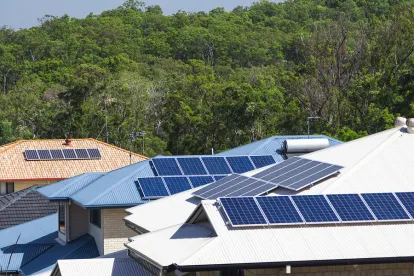The Massachusetts Department of Energy Resources (DOER) recently unveiled new emergency regulations that double the capacity of the state’s solar incentive program and provide important relief to projects under development in light of the COVID-19 pandemic.
Following various Massachusetts electric companies issuing blanket notices of force majeure under the standards for interconnection of distributed generation tariff over the past several weeks, on April 15, 2020, the Massachusetts Department of Energy Resources (DOER) issued an emergency regulation granting a six month extension to the Reservation Period for all Solar Tariff Generation Units (STGUs) in light of the COVID-19 pandemic. Additionally, all STGUs that submit a new application to the DOER between April 15, 2020 and July 1, 2020 will receive this automatic six month extension at the time of application. In other words, STGUs applying for a Statement of Qualification between April 15 and July 1 of this year will have an initial Reservation Period equal to 18, rather than 12 months (the SMART application portal is however temporarily closed to new applications until at least May 18, 2020). This six month automatic extension is in addition to existing extended reservation periods that are available for a fee, due to a legal challenge, a pending authorization to interconnect, an affected system operator study, or good cause. It does not appear that the owners of STGUs are required to take any specific action to take advantage of this six-month extension.
The Solar Massachusetts Renewable Target (SMART) program, which we previously discussed here, was initially capped at 1.6 GW (AC). However, under the new DOER regulations, which took effect on April 15, 2020, the SMART program capacity has now been doubled to 3.2 GW (AC).
In addition to this emergency extension, on April 15, 2020, the DOER announced additional proposed regulations in light of engagement with stakeholders upon the qualification of 400 MW of eligible STGUs in the Commonwealth. Among the proposed changes to the regulations are:
- Increasing the number of blocks in each service territory to 16 from 8 and increasing the overall size of the SMART Program from 1.6 GW to 3.2 GW. This expansion includes set asides for small STGUs between 25 kW and 500 kW and low-income community solar projects
- Clarifying development rights of SMART program projects on land that is considered “Core Habitat”, “Critical Natural Landscape” or “Important Agricultural Farmlands” (replacing the existing “Prime Agricultural Farmland” concept). Projects that applied to the program prior to April 15, 2020 are subject to the existing land use regulations. At the same time, the DOER has added a Pollinator Adder, which provides an additional $0.0025/kWh subject to certain requirements
- Expanding the scope of Low-Income Customers to include individuals residing in a Low-Income Eligible Area, which is a neighborhood identified through the American Community Survey data as having a household income equal to or less than 65% of the statewide median income (even if such an individual would not necessarily be considered a Low-Income Customer on their own)
- Requiring energy storage on all projects larger than 500 kW unless the STGU can satisfy specific exemption requirements (in practice, many projects in Massachusetts were already including storage due to the storage adder available under the SMART Program)
- Imposing further limits on the number of large customers to community solar projects
- Expanding the locations where a public entity STGU may be located and increasing its adder from $0.02/kWh to $0.04/kWh
- Adding additional clarifications related to the location and compensation for canopy based solar systems
The expansion comes at a welcomed time for many in the industry, who are now facing many uncertainties in light of the COVID-19 lockdown. Since March 1, the solar industry has shed more than 6,000 jobs, according to survey data compiled from 250 respondents by the Solar Energy Industries Association. The change is intended to stabilize the industry and reverse job losses.
The stated goal of the SMART program is “to establish a statewide solar incentive program to encourage the continued use and development of generating units that use solar photovoltaic technology by residential, commercial, governmental and industrial electricity customers throughout the Commonwealth.”
While the emergency regulations went into effect immediately according to the DOER’s website, these proposed regulations are subject to a 90-day public comment period, with comments accepted in writing until 5 pm Eastern Time on May 22, 2020. The DOER will be holding a virtual public hearing on the proposed regulations and guidelines on May 22, 2020 from 10 am to 12 pm Eastern Time. Interested parties may register for the virtual public hearing by visiting this link. The DOER said that it expects the regulations — filed with the secretary of state's office Tuesday as emergency regulations — will officially be promulgated on July 15.








 />i
/>i

